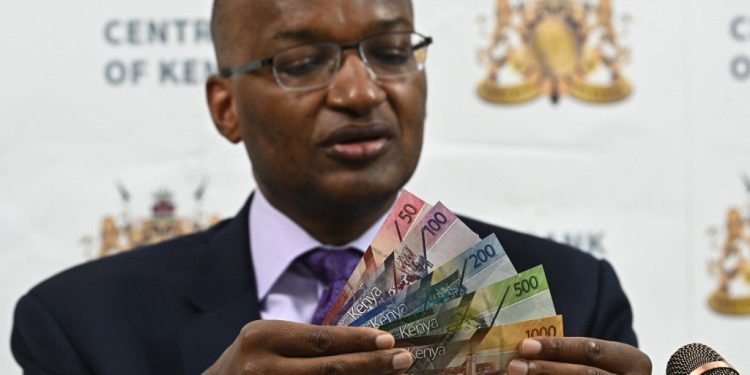The Central Bank of Kenya (CBK) is negotiating with the World Bank and the International Monetary Fund(IMF) for financial rescue package, targeted at cushioning Kenya’s economy from the vagaries of COVID-19 pandemic.
Top on the list is a $60 million emergency support from the World Bank to support the Ministry of Health. The CBK is also negotiating for a $ 350 million with the IMF for budgetary support, a facility that has no conditionalities.
The World Bank will also provide Kenya with a $750 million financial package as part of its official flows to the country, to cushion the economy from the impact of COVID-19.
“These are official flows that were not on our radar at the beginning of this year and are related to the coronavirus. While we do not know how the long this pandemic will last, the World economy is already in a recession meaning that even our GDP growth projection of 6.2 per cent no longer holds. This is why the monetary policy committee is acting to minimize the damage this economy will suffer,” said Dr Patrick Ngugi Njoroge, Governor, Central Bank of Kenya.
He made these remarks during an online media briefing, warning that the global economy is already contracting and could record negative growth this year.
Dr Njoroge observed that continued lockdown of economies abroad could hit Kenyans working there and translate to lower diaspora remittances. CBK maintains that it has an import cover of 5 months and that its forex reserves are still adequate.
“We expect the World Bank and IMF support facilities to begin coming in at the end of April or early May this year,” said the Central Bank Governor.
He also disclosed that efforts are underway to clear all pending bills owed to County governments by the National Government, as a way of cushioning businesses that supply goods and services to county governments. Figures indicate that some 16 country government have already cleared all their pending bills, leaving out 31 devolved units.
Kenya FX Reserves
He gave the assurance that the CBK has adequate foreign exchange reserves. The Governor blamed forex dealers for fueling the depreciation of the Kenya Shilling. Dr. Njoroge said that the unfounded fears and speculative activities by some market players have partly contributed to the decline of the Shilling which on Tuesday’s trading session hit a record low of 107.200.
READ;
CBK Cuts Key Rate To Near 9-Year Low
CBK Expected to cut rate as Shilling Weakens to 106.51 Against Dollar
“The forex market is fairly balanced although we have seen some volatility in recent days and will intervene to minimize the volatility,” said Dr Njoroge.
Dr Njoroge added that a fiscal package is being worked on, with the participation of private sector players, and will soon be unveiled. He expressed concerns that while the pace of private sector credit growth has been good, repayment of personal loans may be a challenge due to the disruptions caused by the Coronavirus pandemic.
Figures indicate that roughly 28 per cent of all bank credit is made of personal loans. CBK is encouraging banks to offer relief to distressed borrowers as well as restructure loan repayments plans of small businesses and corporate firms.
The CBK has thus lowered the cash reserve ratio(CRR) by 1 per cent, from 5.25 per cent to 4.25 per cent, freeing the amount of cash that is held by the CBK from commercial banks. This policy action releases more cash to commercial banks, allowing them to compensate for restructuring existing distressed loans.
The bank said it was closely monitoring the happening at the inter-bank lending window and has extended tenor of repurchase agreements from 28 days to 90 days. A repurchase agreement (repo) is a form of short-term borrowing for dealers in government securities. On this window, a dealer sells government securities to investors, usually on an overnight basis, and buys them back the following day at a slightly higher price.
” We will allow banks to bring in their T-bills for a new deal, extending the period to 90 days, until anxiety over COVID-19 dissipates,” said Dr Njoroge.
While Kenya’s key sectors such as hotels, horticulture, flower industry and aviation have been hit hardest, Dr Njoroge points to a a silver lining. For instance, the price of Murban crude oil has declined significantly from $86.8 per barrel in October 2019 to $ 69.9 in December 2019, $52.4 in March and is now at $26.5 per barrel.
“Oil imports account for over 20 per cent of Kenya’s import bill. With declining crude oil prices, our concerns have shifted from inflation to output as lack of space on international flights hit the flower industry, tourism and horticulture. Finding an alternative source of imports, away from China requires more work and time,” said Dr Njoroge.
ALSO READ:
World Bank Commits KSh8 Billion to Help Kenya Combat COVID 19
Kenya’s Flower Industry Succumbs to COVID-19
Kenya’s Economy Has Highest COVID-19 Risk Exposure in Africa ~ RMB



